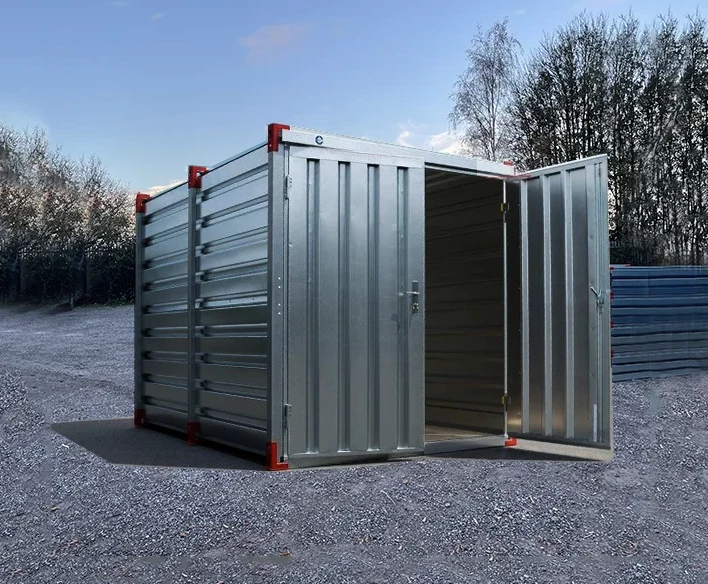
Partner Article
Do I Need Planning Permission to Use a Shipping Container?
In the UK, whether you need planning permission to use a shipping container depends on the intended use and location of the container. If you plan to use the container as a permanent structure, such as a home or office, you will likely need planning permission from your local planning authority. However, if you are using the container temporarily, for storage or as a site office, you may not need planning permission.
As a general rule of thumb, the likelihood of planning permission being required increases significantly when a structure is converted from mobile (or portable) to static. This means that if you install a structure within the confines of your property that is considered mobile, it will most likely be considered temporary and will therefore be exempt from planning permission requirements.
Even so, it is typically the purpose for which a shipping container or used shipping container (or similar structure) will be used that will determine whether or not planning permission is needed.
When applying for planning permission for a shipping container, you will need to provide information about the proposed use of the container, its location and how it will be connected to services such as electricity and water. You may also need to provide information about how the container will be accessed and how it will be secured.
Building Regulations Approval
In addition to the standard planning permission application, you may also need to apply for building regulations approval. Building regulations approval is required for any new building or extension to an existing building, including shipping container conversions. The process involves submitting detailed plans and specifications for the proposed conversion to your local building control team. They will then assess the plans to ensure that they comply with building regulations and will issue a building regulations compliance certificate if they are satisfied.
In some cases, you may also need to apply for other permissions, such as a change of use or a lawful development certificate. If you are planning to use the container as a dwelling, you may need to apply for planning permission for residential development. This requirement can also vary on the basis of the permanence or otherwise of the structure. It is not uncommon for shipping containers to be used as strictly temporary dwellings for workers on project sites, as well as for many other purposes.
This is why planning permission applications and requests for building regulations approval are considered on a case-by-case basis. Irrespective of how confident you are that your intended use for a shipping container negates the need for planning permission, it is still a good idea to check with your local council in advance.
Additional Regulations and Restrictions
It’s important to note that there may be additional regulations and restrictions that apply depending on the location of the flat pack container. For example, if the container is located in a conservation area or an area of outstanding natural beauty, there may be stricter planning rules in place.
It’s also worth noting that even if you don’t require planning permission, you should still inform your local planning authority of your plans. This will help ensure that there are no issues with your proposed use of the container and that it meets all relevant regulations.
In Summary… Adding a shipping container to your property can be a great way to make the best possible use of all available space. But depending on how you plan on using your shipping container, planning permission may be required, along with other types of approvals.
In general, if you are planning to use a shipping container as a permanent structure, such as a home or office, you will likely need planning permission. However, if you are using the container temporarily for storage or as a site office, you may not need planning permission.
It’s therefore best to check with your local planning authority to determine if you need planning permission for your specific case.
This was posted in Bdaily's Members' News section by Weblinx .
Enjoy the read? Get Bdaily delivered.
Sign up to receive our popular morning National email for free.








 Raising the bar to boost North East growth
Raising the bar to boost North East growth
 Navigating the messy middle of business growth
Navigating the messy middle of business growth
 We must make it easier to hire young people
We must make it easier to hire young people
 Why community-based care is key to NHS' future
Why community-based care is key to NHS' future
 Culture, confidence and creativity in the North East
Culture, confidence and creativity in the North East
 Putting in the groundwork to boost skills
Putting in the groundwork to boost skills
 £100,000 milestone drives forward STEM work
£100,000 milestone drives forward STEM work
 Restoring confidence for the economic road ahead
Restoring confidence for the economic road ahead
 Ready to scale? Buy-and-build offers opportunity
Ready to scale? Buy-and-build offers opportunity
 When will our regional economy grow?
When will our regional economy grow?
 Creating a thriving North East construction sector
Creating a thriving North East construction sector
 Why investors are still backing the North East
Why investors are still backing the North East